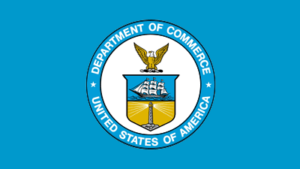
Attorney with Rabinowitz & Rabinowitz Comments on Likely EB-5 Backlog for China For 2014
Feb 26, 2014
Dallas, TX (Law Firm Newswire) February 26, 2014 – Increased demand for EB-5 visas allowing foreign investors to gain permanent residence in the U.S. may lead to a backlog in visa availability.
Activity in the investor EB-5 visa program has expanded widely over the past several years, and a record number of EB-5 petitions were filed during fiscal year 2013. The United States Citizenship and Immigration Services (USCIS) reported that 6,517 initial EB-5 visa petitions were received from foreign investors under the program.
At of the end of the government’s fiscal year (September 30, 2013), 3,696 investor petitions had been approved, most of them from China. There are 10,000 EB-5 visa numbers available each fiscal year worldwide. Since the program’s inception in 1990, demand has never exceeded supply — until now.
The U.S. Department of State has made tentative projections of backlogs for Chinese investors applying for EB-5 visas for fiscal year 2014, which may require a cut-off date for Chinese EB-5 applicants. If a cut-off date is put in place, visa number availability could be retrogressed by more than one year. And it would apply to all Chinese EB-5 petitioners — whether the investments are made directly into a U.S. business or into a regional center approved by USCIS. That means that EB-5 petitioners from China would have a waiting period for a visa number to become available (apart from USCIS case processing time) before being able to immigrate to the U.S.
Stewart Rabinowitz, a Dallas, Texas board-certified immigration attorney, said that the potential quota retrogression would have a negative effect on Chinese investment in the U.S.
“Notwithstanding increased government scrutiny over the EB-5 program from the SEC and USCIS, large numbers of foreign investors, 80 percent of whom are from China, see benefit in investing in the U.S. and gaining status here,” said Rabinowitz. “A quota for EB-5 applicants from China could have a damper effect on Chinese investors because it would prolong their immigration processing into the U.S. It also could affect regional center projects, causing a delay in investor fund availability.”
The EB-5 visa program allows a foreign national to live in the U.S. as a permanent resident if he or she makes a minimum $500,000 investment in a job-creating venture. Investments have been made in casinos, wind farms, retail stores and many other businesses. Sony Pictures and Marriott are among the companies that have received investment dollars from EB-5 investors. The program is estimated to have created 57,300 jobs and raised $8.6 billion since its original launch date. Recent allegations of fraud and mismanagement have led to increased scrutiny of the program, causing further processing delays in the application procedures.
Investors who are approved under the EB-5 program receive conditional permanent residence for themselves and their families for two years. If the investment can be shown to have created 10 or more jobs at the end of a two-year period, in addition to meeting other requirements, USCIS can remove conditions on permanent residence for the investor and his or her family members — the final step in becoming a lawful permanent resident or “green card” holder.
Learn more at http://www.rabinowitzrabinowitz.com.
Rabinowitz & Rabinowitz, P.C.
14901 Quorum Drive, Suite 580
Dallas, Texas 75254
Phone: 972.233.6200
- Bipartisan Group of Senators Press Secretary Kerry to Grant TPS to Filipinos
On February 6, 2014, a group of 20 bipartisan Senators wrote to Secretary of State John Kerry requesting the Department of State to grant Temporary Protective Status (“TPS”) to certain Filipinos in the United States. Nearly three (3) months ago, Typhoon Haiyan devastated portions of the Philippines and killed more than 6,000 persons. The scope […] - U.S. Consulate General in Toronto to Require E Visa Applicants to E-Mail Applications
Effective March 1, 2014, the U.S. Consulate General in Toronto will move to an electronic filing of E visa comprehensive packages in advance of an interview. The post announced the change on February 10, 2014 and requests that the visa packages arrive at least 2 weeks in advance of the interview appointment date. The submissions […] - HHS Issues 2014 Poverty Guidelines
The Department of Health and Human Services has released the Poverty Guidelines for 2014. This annual update reflects changes in the preceding year’s Consumer Price Index. Annual Poverty Guidelines are part of the calculation used in preparing an Affidavit of Support for family based and certain employment based adjust of status case and immigrant visa […]





